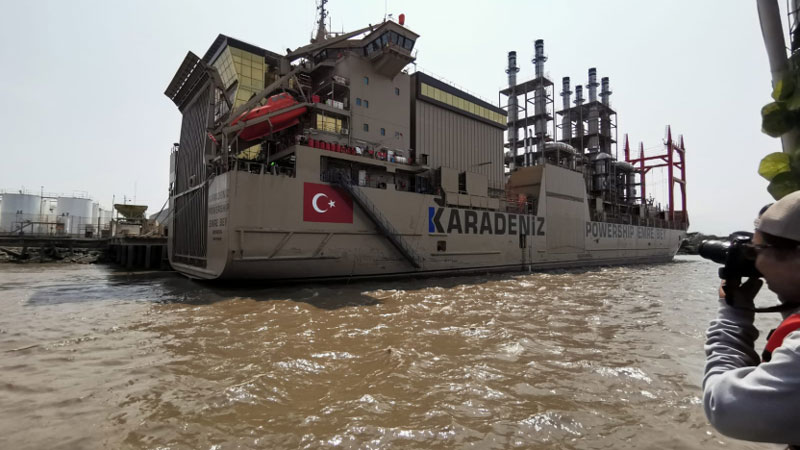Assembly impeachment trial against Salazar can proceed; Ecuador receives $150 million for security; Colombia to restrict electricity exports to Ecuador
Attorney General Diana Salazar said Monday that she is ready to face an impeachment trial in the National Assembly. The trial was postponed earlier in the year due to complications with her pregnancy. “My doctor has assured me that the issues she was concerned about regarding the pregnancy are now under control,” Salazar wrote on her X account.
the issues she was concerned about regarding the pregnancy are now under control,” Salazar wrote on her X account.
“I am ready to face the narco trial that is planned for me in the Assembly,” she said in her video statement. “Yes, you have to call things by their name, and this is a crude attempt at revenge by criminal groups who want to remove me from office.”

Attorney General Diana Salazar
Salazar’s comment drew a rebuke from the Assembly’s Citizens Revolution bloc that supports the trial. “We strongly reject the statements by Attorney General Salazar,” said president of the Oversight Commission Pamela Aguirre. “She may describe it as a drug trial but it is a process established in the Constitution and that fully complies with the law.”
The Correistas charge Salazar with breach of duty for procedural irregularities in her management of the Attorney General’s office.
It is unclear when Salazar’s trial will begin since Assembly rules for impeachment proceedings must follow a pre-determined schedule. A date for next trial, against Interior Minister Monica Palencia, has yet to be set.
Colombia to restrict electricity sales
Colombia’s Energy Minister said Tuesday that the amount of electricity it can sell to Ecuador is subject to developing drought conditions. “We are experiencing the same hydrological issues with our hydroelectric generation capacity as Ecuador and will restrict potential sales as needed,” the ministry said in a statement.
The ministry said that any electricity exported to Ecuador will be generated at gas- and diesel-fired plants and will come at a higher price. “Even sale of our thermal-generated power could face restrictions depending on conditions in Colombia.”
On Saturday, Ecuador’s Energy Ministry said it is contracting for a second and possibly a third thermal generation barge from a Turkish company to boost the country’s energy supply. The company’s first barge is already in port at Guayaquil.
Ecuador receives $150 million security grant
The Inter-American Development Bank (IDB) announced Monday it will invest $150 million to support security programs in Ecuador. The grant is part of a collaboration with the World Bank and the Development Bank of Latin America, aimed at “confronting organized crime and rebuilding the social fabric in the region.”
The grant was announced Monday during the opening ceremonies of the Latin American Security Summit in Guayaquil.
IDB President Ilan Goldfajn said the grant is similar to others planned for other Latin American countries. “Building strong and sustainable economic structures in the Americas is in the interest of the bank and to do this we must confront organized criminal groups attacking the entire region,” he said. “This is not just an effort to fight crime but an effort to strengthen the social programs that provide opportunities and support to the region’s youth who are being recruited by criminal groups.”
Former minister criticizes medical training
Former Health Minister Luis Sarrazín said Tuesday that Ecuador suffers from poor training of medical professionals. In particular, he said medical training at the University of Guayaquil “has gone downhill in recent years,” and that many graduates of the program are poorly prepared to practice medicine.
“What I see in Guayaquil is the case in medical schools throughout the country and, ultimately, it means the public will receive substandard care,” Sarrazín said. “We must evaluate our admissions process to make certain those entering medical training meet basic standards,” he said. “After that, a full review of the educational programs must be conducted. If the education is poor, then the doctors it trains will provide poor service to patients.”
Sarrazín called the passage rate of the final medical exam at the University of Guayaquil “outrageous.” In the most recent exam, he said, only 221 of 423 graduates passed. “Doesn’t this tell you we have a serious problem?” he asked.
















